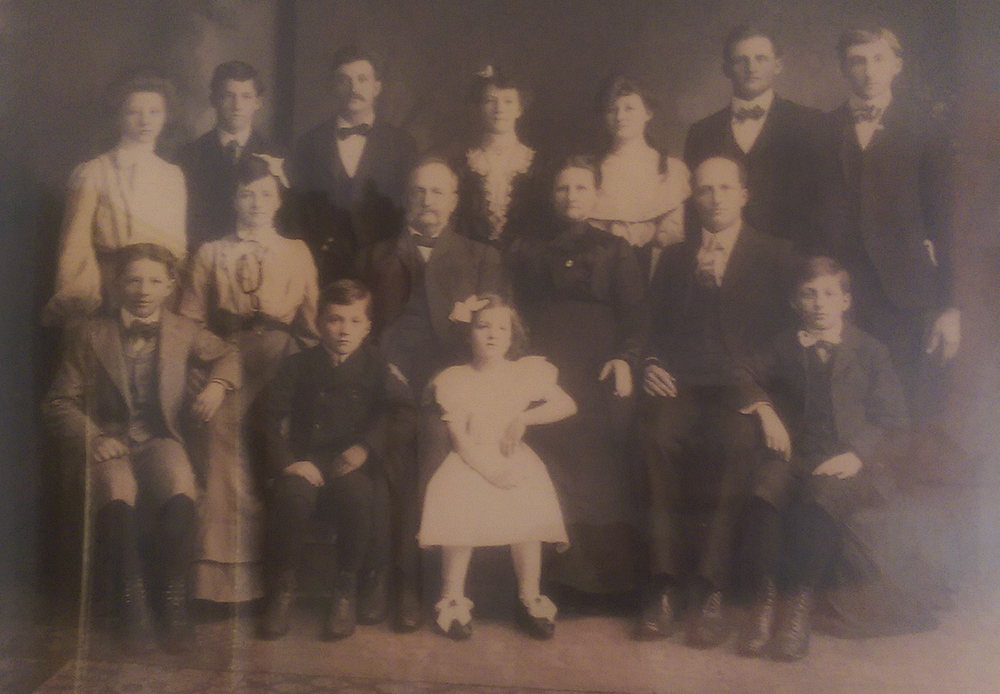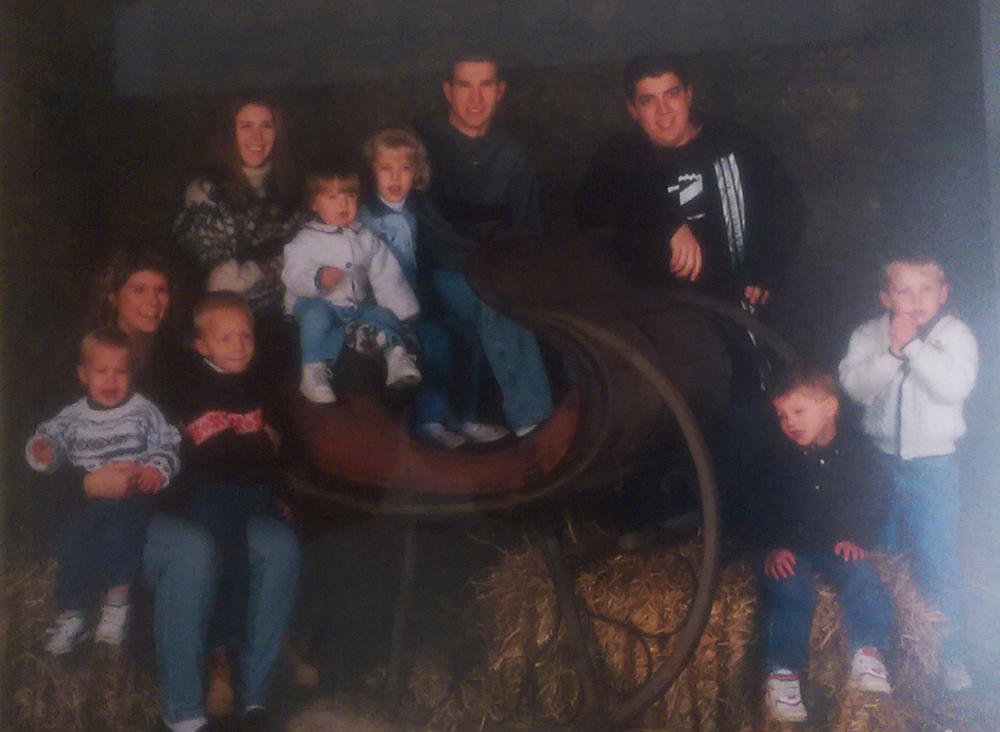Clarence Fackler, Louise (Niece)
The Fackler family history in America extends far back to the eighteenth century. Between 1737 and 1890 at least twelve Facklers are believed to have entered America as immigrants from Europe including a member of Clarence Fackler’s family, Hans Jacob Fackler. The majority of Mr. Fackler’s relatives were of German and Swiss decent. Although the agricultural side of the Fackler family history doesn’t flourish until Henry F. Fackler, Clarence’s grandfather, their family’s history is riddled with successes dating back to America’s fight for independence.
Abraham Fackler, Clarence’s grandfather’s grandfather, was born in Pennsylvania in 1777 after his father, Wendel Fackler, had emigrated from Germany. Years later, Wendel Fackler fought alongside General George Washington and colonial soldiers against the British at Valley Forge. Abraham carried on his father’s patriotic legacy by serving in many battles during the Civil War including Buffalo, New York, Baltimore, Maryland and others. Ultimately, Abraham settled in Richland County, Ohio in 1840; where the Fackler family name would stay.

Joseph Fackler, Clarence’s great grandfather and Abraham’s son, settled in Richland County in 1843, following his father’s return. Joseph brought a large family to Richland County when his family settled. Henry F. Fackler, one of Joseph Fackler’s sons and Clarence’s grandfather, started farming at a young age. After school, Henry began cultivating 107 acres in Jackson Township, which he added to regularly over the years. A string of purchases made from 1877 to 1908 gave Henry nearly 964 acres of farm land located in Franklin, Jackson and Cass townships. A segment written by A. J. Baughman, published in 1908 describes Henry F. Fackler by saying:
“With the exception of one year devoted to carpentering in early manhood, he has given his entire life to agricultural pursuits, and stands today as one of the most prosperous farmers of this part of the state. His business methods have never been such as require disguise, but on the contrary have been in keeping with the most honorable and straightforward dealing, his prosperity coming to him as a reward of earnest, persistent labor.”

Henry F. Fackler paved the way for the Fackler family legacy in Richland County and ensured their family with agricultural prosperity for centuries to come. He and his wife, Miss Elizabeth Laser, had fourteen children. Mr. and Mrs. Fackler provided their children with all the necessary means to live long, prosperous lives.
Henry F. Fackler’s son and Clarence Fackler’s father, A.C. Fackler, started farming out of his father’s growing agricultural opulence. Although Henry F. manufactured a farming legacy for the Fackler Family, it’s important to note that A.C. expected his family to do nothing less.
Clarence Fackler has been a farmer in Richland County for decades. Over the years he has grown beans, corn, spelt and wheat; raising cattle and hogs in the process. At one time, Clarence was farming over 1,200 acres, some that he owned and some that he farmed for others. Now, he farms around 700 acres, which fluctuates with the price of land and the price of land tax. Louise Anderson, Clarence’s niece, noted that “You absorb it and you know it, but very few do you hear making a success of any kind of farming that weren’t born into it and understand it, as well as getting the land, it’s just too complex of an organization.” With land taxes increasing and crop prices dropping, farmers have been struggling.
One positive aspect about progressive farming is that new technologies have made it easier to plant more crops, more efficiently. As a boy, Clarence remembers a time when he used a team of horses and a walking plough to till the ground. It wasn’t until the early 1940s that Clarence’s dad bought the family’s first tractor.

In 1950, the first year Clarence started farming, his father agreed to plant the field on conditions that it was Clarence’s responsibility every year after that. So, his fathered planted Clarence’s approximately 10 acres with team of horses. That following year, Clarence invested in a two-row planter from his cousin down the road to make the job easier. Like many farmers in the area today, Clarence farms with a twelve-row planter and a six-row combine. He has acknowledged progression but stayed within his means. Farming chemicals are no different.
Clarence had always used small amounts of fertilizer when farming, but weed and pesticide control progressed more casually. 2,4-D, like most farmers of his generation, was Clarence’s first chemical that killed weeds, not grass. He also utilized 2,4,5-T which is a major chemical in Agent Orange – known to cause health problems. Over the years, Roundup became the most popular chemical used in agricultural field across the United States. Today nearly all farmers, including Clarence’s son, uses Roundup Ready seeds that will live through Roundup chemical treatments. Clarence stated, “It has probably been the biggest jump that we can have one chemical that does 90 percent of the control.” Even though modern advancements in chemicals and equipment have sprouted, hard work is crucial.
When he first started farming, a day in the life of Clarence Fackler was filled with long nights on a two-row tractor. Though he spent many nights working by moonlight, nearly ninety percent of his time was taken up with equipment repairs and taking care of livestock. In addition, making maple syrup had been a longstanding tradition that was expected of farmers. Clarence’s son continues this legacy with an evaporator of his own.
Whether or not Clarence would have chosen farming as an occupation if his father hadn’t expected him to, is a mystery. He had no interest in attending college when he graduated from Shelby in 1950, but football was his life. After school, farming wasn’t a choice – it was necessary.
As important as farmers are today, if one is not born into an agricultural family; they stand little to no chance this business. Clarence was asked to advise young people who wanted to farm today; he explained that once a person accumulated enough equipment, tools and land to make a living in the market today their debt would be too high and unmanageable. Times have changed but there is no doubt that Clarence Fackler and the Fackler Family have made their agricultural mark on Richland County.
“It’s a way of life that you’re gonna have to like.”
Clarence Fackler